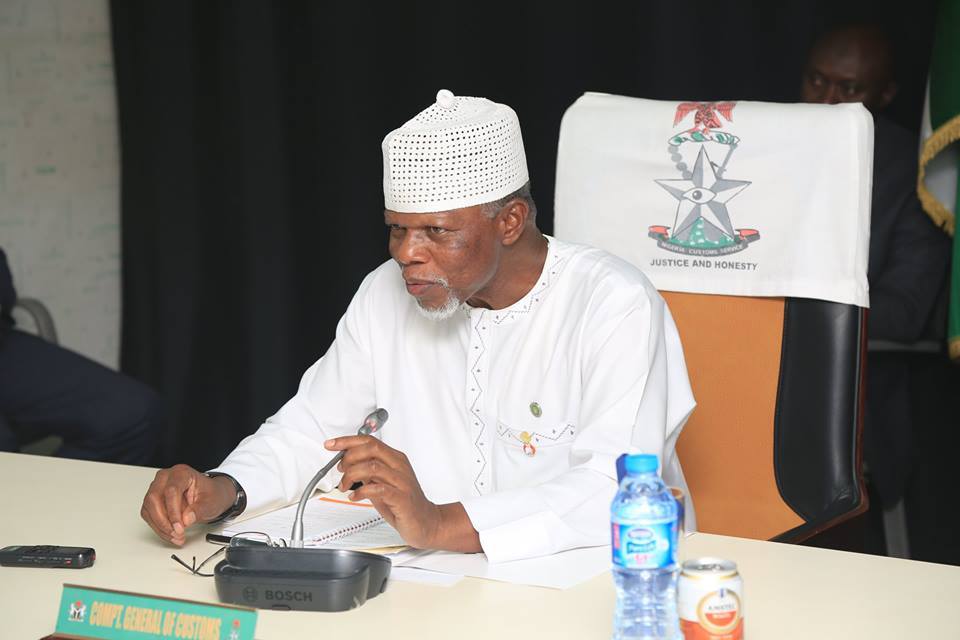
The latest massive arms seizure by men of the Nigeria Customs Service clearly mirrors the daunting nature of the security challenges facing the country today. Indeed, it should also serve as a wake-up call to the security agents to plug all loopholes and ensure that the country ceases to be a dumping ground for weapons.
For a country already brimming with guns and gun crimes, the seizure, in one haul, of 440 guns is both frightening and disquieting. In countries that put premium on security, it should cause sleepless nights for security chiefs. The situation, more than ever before, demands more rigorous patrols and checks at the various entry points into the country, be it at the land borders, the airports or the seaports.
It is even more disconcerting that an even bigger haul of 661 pump-action rifles was intercepted in January after it had successfully beaten every security cordon at the Apapa Port and was about escaping when it was tracked down, after a tip-off. More staggering was the fact that the arms-bearing container had been purportedly checked and certified free to go with its deadly contents.
Again, this raises questions about the quality of equipment deployed at the port, a main gateway into the country. What is the state of the scanners in use there? It also says a lot about the level of diligence and dedication of the officials who are checking and clearing goods before they are allowed into the country. How did such lethal cargoes pass through the numerous security areas and inspection points without being spotted? These questions are still awaiting answers, five months after the incident.
The latest haul, concealed in a 20-foot container, contained 100 pieces of black tornado single-barrelled rifles; 215 pieces of single-barrelled rifles; 75 pieces of silver magnum single-barrelled rifles and 50 pieces of pump-action rifles. They all came complete with their component parts – 164 pieces of rifle nozzles; 103 pieces of arms grips; 110 pieces of triggers; 113 pieces of arms guard; 122 pieces of Allen keys and 117 pieces of gun butts. These are enough to wage a war against a state. In fact, the rag-tag army of Fidel Castro did not have as much weapons when they attacked the Moncada Army Barracks on July 26, 1953.
It is mindboggling that non-state actors have often been allowed to exploit the laxity in the security system to operate above the law. This perhaps explains why a company linked to a former militant, Government Ekpemupolo, aka Tompolo, was allowed to bring gunships into the country, purportedly on behalf of the Nigerian government. It is also this kind of attitude that made it easy for a Russian plane arrested with arms in Kano in 2014 to be released so easily, despite the security implications for the country. The same city was the venue of the discovery of weapons in a bunker for which nobody is known to have been brought to book.
The two major recent seizures are only an indication that, with the country’s porous land borders, many more of such weapons must have passed through, undetected. But for the last minute tip-off, the 661 rifles would also have escaped, having already been given an all clear to proceed.
These incidents expose the effortless manner with which access is gained to sophisticated weapons in the country. Apart from those manufactured locally, a report quoting the Director of United Nations Regional Centre for Peace and Disarmament in Africa, Olatokunbo Ige, last year described Nigeria as home to about 70 per cent of the 500 million Small Arms and Light Weapons in West Africa.
That is why the brains behind these arms imports should be unravelled and interrogated; security operatives should be able to uncover the motives for their actions. The reason for this is compelling in the light of the heightened state of insecurity in the country. While some demented religious fanatics have been embarking on a killing spree in the North, others, in the name of militancy, have been destroying the country’s key economic assets and perpetrating unbridled kidnapping in the South.
Besides these sundry forms of criminality, there has been renewed tension in the country of recent, after the Chief of Army Staff, Tukur Buratai, alerted Nigerians to the clandestine moves by politicians to bring the military into politics. The illegal arms imports could be a process of armament for the purpose of a coup or, as usual, to cause mayhem during the elections, with the next round of national polls due in less than two years.
Apart from blocking the loopholes through which illegal weapons get into the country, it is also time to mop up those already in the system. This is an approach used in some countries that are facing similar situations. For instance, Kenya, led by the Deputy President, William Ruto, set fire to 5,250 weapons in November last year, in a bid to keep guns away from wrong hands.
In Nigeria, where the whistle-blowing policy is about to be introduced for the purpose of mopping up illicit weapons, it should be pursued with tenacity. Whenever such guns are retrieved, they should be publicly destroyed, unlike in the past where nobody knew what actually happened to them. Access to guns should be made stricter to curb their proliferation. Above all, those arrested importing arms into the country should face accelerated trial and punishment.
END

Be the first to comment